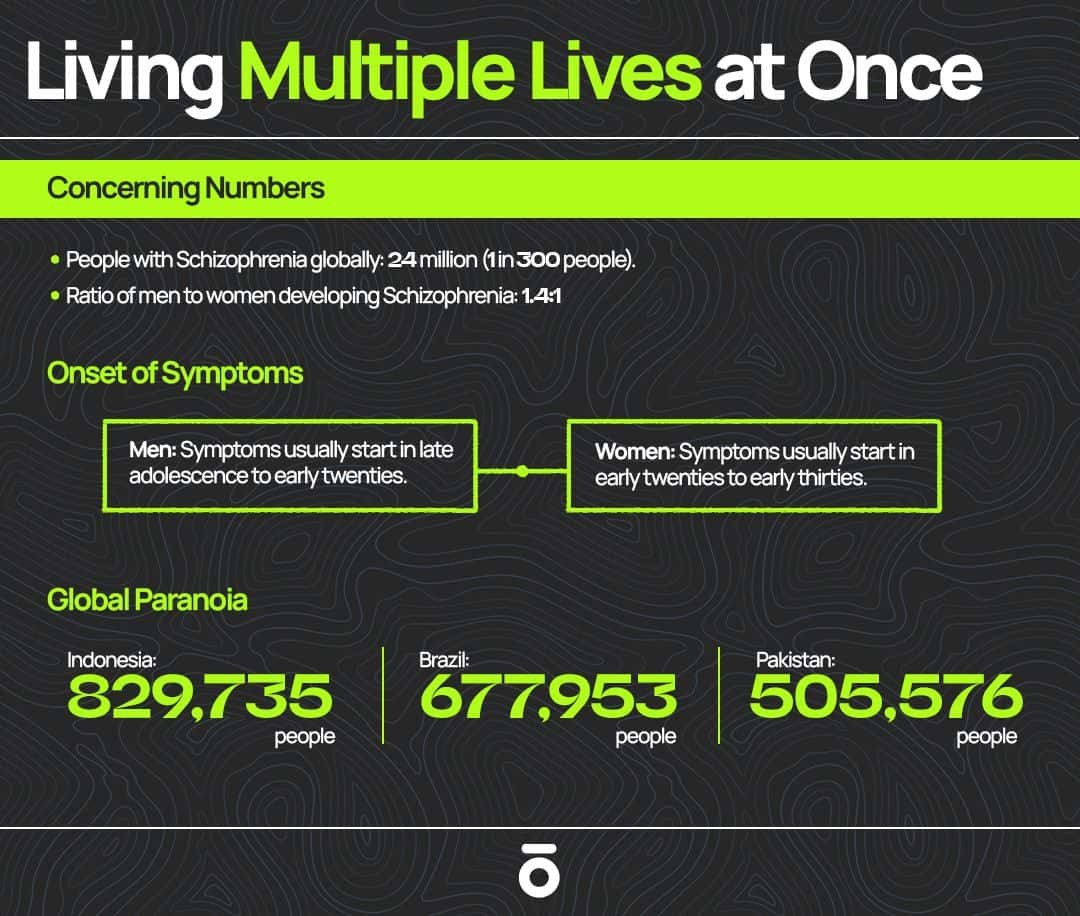7 Treatment Methods for Schizophrenia

Introduction
Shalini stood by the lone window in her room, staring at the road below, even though her eyes seemed to be trained on something in the distance. The city was abuzz with life, cars honking, people entering and exiting stores- but for Shalini, it felt as if the world wasn’t moving at all.
It took time to start- a faint echo here, a shadow moving there. In the initial stages, it was easy to dismiss these. “Stress”, thought Shalini. However, as time progressed, the voices grew louder and the shadows darker.
“Don’t trust them”, whispered another voice, which she mistook for her mother’s.
Shalini felt her heart race. She looked around but did not find anyone. Yet, the voice grew clearer as the days progressed. “It’s them, they’re lying to you. They know it all”
Voices aside, Shalini had begun to notice things in her apartment had started to move without human interference. A picture slightly out of place, a glass here and there. She never remembered doing this.
“It’s all part of the plan” said the voice, as if everything was connected.
The voice always spoke to her directly. She tried ignoring it at first, but it wouldn’t go away. She tried telling herself that she was paranoid. But the more she tried, it seemed as if the world was closing in on her. She couldn’t trust anyone.
Schizophrenia- A Suffering Without Pain
A serious mental illness that impacts how a person thinks, behaves or feels. Psychotic symptoms, hallucinations, delusions and thought disorders. All of this and so much more. A person suffering from schizophrenia experiences reduced expression of emotions, disconnected from emotions or with a limited range of emotions. Such a person finds it tough to manage social relationships and becomes withdrawn from social activities.
The symptoms take time to develop and begin during adulthood. Schizophrenia affects you for life - but there’s help. Effective treatment can help a person manage the symptoms, prevent relapses and avoid hospitalisation. Treatment options include antipsychotic drugs, counselling and coordinated special care. Here are seven treatment options for schizophrenia.

Treatment Methods
Risperidone
This atypical antipsychotic medication is pretty effective in its treatment of schizophrenia. This medicine balances out serotonin and dopamine levels in the brain. This medicine can be taken either orally or by injection. When injected, it lasts for a long time. This medication comes with its own slew of side effects like weight gain, fatigue, drowsiness, insomnia, dry mouth, constipation, restlessness and increased prolactin levels. Serious side effects include an increased risk of suicide as well as increased blood sugar levels.
Aripiprazole
This is yet another antipsychotic medication that can help with the symptoms of schizophrenia, like hallucinations, suspiciousness, delusions and muddled thoughts. This medication is available in liquid, tablet or injectable forms. It affects brain chemicals like serotonin and dopamine.
Once you take Aripiprazole, it works in a span of several days or weeks. Common side effects include issues with sleep, restlessness, anxiety, constipation and headaches. Aripiprazole is quite effective in treating schizophrenia.
Haloperidol
Also known as Haldol, this first-generation antipsychotic is great for schizophrenia. It targets the positive symptoms of schizophrenia, like delusions, hallucinations and wayward thinking. So, where does this medication lose out to the other antipsychotics? It’s because it has a fair number of side effects like blurred vision, strange postures, dry mouth, tiredness, fever, chills and sweats.
Available in different formulations and routes of administration, this drug can be administered for emergency situations as well as long-term use. This is one of the many antipsychotic drugs for schizophrenia that are slowly being phased out with the advent of newer and more efficacious drugs.
Cognitive Behavioural Therapy
Cognitive behavioural therapy for schizophrenia, or CBT, is great for a gamut of psychological conditions, including relationship issues, anxiety, substance abuse, eating disorders and schizophrenia. In this type of talk therapy, people reflect on how they think and behave, pick areas that are unhealthy or problematic and start changing thoughts and actions into healthy responses.
Cognitive Enhancement Therapy
This is another common method of treatment. Also called cognitive remediation, this is a system of cognitive training that is great for people suffering from schizophrenia or schizoaffective disorder. Recovery-based is great for people who have stable symptoms but who lack vocational and social skills. CET concentrates on boosting memory, organisation, motivation, cognition and social adjustment, as well as vocational, social and familial functioning.
Assertive Community Treatment
Assertive Community Treatment therapies for schizophrenia is a behaviourally-oriented subcategory of CBT that depends on counter-conditioning and positive reinforcement to alter how to react to emotions, thoughts, impulses and physical feelings. This is a team-based approach to mental health care for people with severe mental illness that looks to improve outcomes.
Social Skills Training
What this involves is a bunch of techniques that assist someone suffering from schizophrenia to increase their ability to have social interactions. By targeting specific skill insufficiencies, this treatment starts curtailing the negative symptoms of schizophrenia and improves critical social functioning that can assist you in maintaining healthy relationships and positive personal interactions.

Conclusion
In conclusion, there are quite a few treatment options for schizophrenia. In addition to the above, you have family therapy for schizophrenia, integrated treatment for schizophrenia, and innovative treatments for schizophrenia, all of which approach treating schizophrenia in a holistic manner. Managing schizophrenia symptoms is quite difficult, especially if you have limited access to help. However, if you follow the schizophrenia treatment guidelines, you will be able to lead a normal, stress-free life. To sum it up, you must have access to long-term care for schizophrenia so you can be treated and live life outside the shadow of mental illness.






